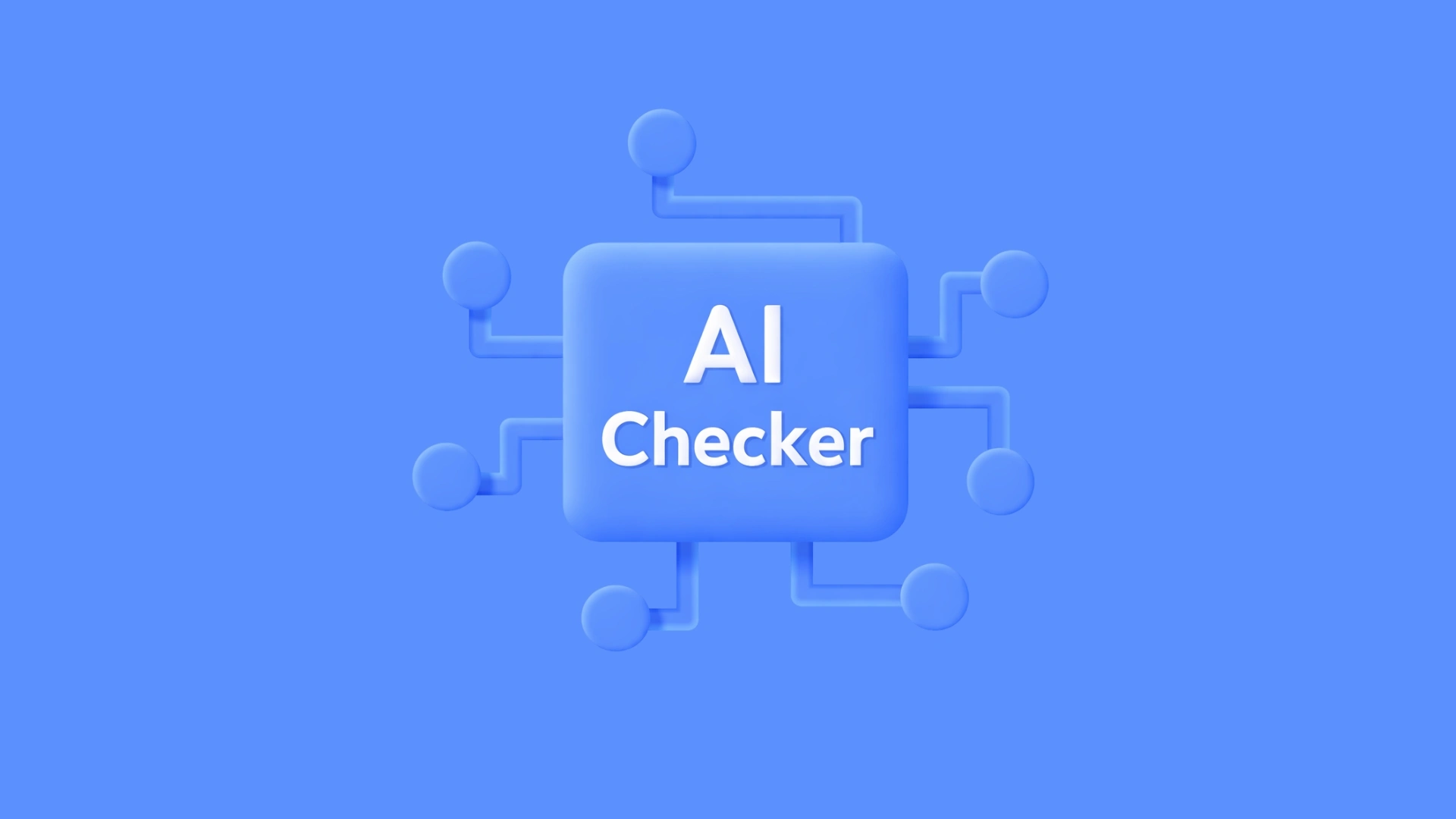Key Takeaways
- ✓ Smart contracts execute when transactions trigger them, running code inside the blockchain’s virtual machine automatically.
- ✓ Web3 connects user interfaces to blockchain networks, making it easy for smart contracts to execute from websites and apps.
- ✓ Gas fees pay for computation when smart contracts execute, with costs varying based on complexity and network demand.
- ✓ All network nodes must agree on results before execution is final, ensuring trustless and tamper-proof operations.
- ✓ Failed executions revert all state changes, protecting users from partial or corrupted transaction outcomes.
- ✓ Security checks during execution prevent unauthorized access and protect funds from common attack patterns.
- ✓ On-chain execution provides full transparency while off-chain solutions reduce costs for complex operations.
- ✓ Real-world Web3 applications use smart contract execution for DeFi, NFTs, DAOs, and automated business logic.
Introduction to Smart Contract Execution in Web3
Smart contracts form the backbone of decentralized applications in Web3. When smart contracts execute, they run code that moves money, transfers ownership, and enforces agreements without any middleman. Understanding how this execution works is essential for anyone building or using blockchain applications. This guide explains the complete process in simple terms.
With over 8 years of experience building blockchain solutions, we have helped countless teams understand how smart contracts execute on various networks. The technology might seem complex at first, but the core concepts are straightforward once broken down. We share our practical knowledge to help you grasp these important ideas.
Web3 represents the next evolution of the internet where users control their data and assets. Smart contracts are the programs that make this possible by running trustlessly on decentralized networks. When smart contracts execute correctly, they create systems that work reliably without requiring trust in any single party or company.
This guide walks through every aspect of smart contract execution from basic triggers to advanced optimization techniques. Whether you are a builder creating dApps or a user wanting to understand the technology, you will find valuable insights throughout this comprehensive overview of how smart contracts execute in Web3.
The knowledge in this guide comes from building hundreds of production smart contracts across DeFi, NFTs, and enterprise applications. We share practical tips that go beyond theory to help you understand the real mechanics of how transactions flow through blockchain networks and how your code actually runs when users interact with your contracts.
What Web3 Means for Smart Contracts
Web3 changes how we interact with smart contracts by putting users in control. In the old web, servers run all the code and users must trust companies with their data. In Web3, smart contracts execute on decentralized networks where no single entity has control. Users connect their wallets and interact directly with contract code.
The Web3 stack includes blockchain networks at the base, smart contract solution as the logic layer, and frontend interfaces that users see. Libraries like Web3.js and ethers.js connect these pieces together. When smart contracts execute through Web3, the entire process happens transparently on-chain where anyone can verify the results.
| Web Version | How Code Runs | User Control |
|---|---|---|
| Web1 | Static pages served by servers | Read-only access |
| Web2 | Server-side code controlled by companies | Account-based, company owns data |
| Web3 | Smart contracts execute on blockchain | Wallet-based, user owns assets |
This shift matters because when smart contracts execute in Web3, the rules are public and unchangeable. Users can verify exactly what code will run before they sign transactions. This transparency builds trust without requiring faith in any company or institution to behave honestly.
Web3 wallets like MetaMask serve as the gateway for users to interact with smart contracts. When users want smart contracts to execute their transactions, they connect their wallet to the dApp, review the transaction details, and approve with their private key signature. This process keeps users in full control of their assets at all times.
The decentralized nature of Web3 means no single point of failure. Traditional web services can go down, get hacked, or censor users. When smart contracts execute on blockchain networks, they continue working as long as the network exists. This resilience makes Web3 ideal for applications that need guaranteed uptime and censorship resistance.
How Smart Contracts Run on Blockchain Networks
Blockchain networks provide the environment where smart contracts execute. The most common is the Ethereum Virtual Machine, or EVM, which runs on Ethereum and many compatible chains. When smart contracts execute, the EVM processes bytecode instructions step by step, tracking gas consumption and state changes throughout the process.
The execution happens inside a sandboxed environment isolated from the host computer. This isolation ensures that smart contracts execute safely without accessing files or network resources outside the blockchain. The EVM has its own memory, storage, and stack that contracts use during execution.
Virtual Machine
The EVM runs compiled contract bytecode in a safe, isolated environment on every node.
State Storage
Contracts store data in permanent blockchain storage that persists between calls.
Consensus
All nodes must agree on execution results before state changes become permanent.
Different blockchain networks have their own execution environments. Solana uses a different virtual machine optimized for parallel processing. Understanding where your smart contracts execute helps you optimize for the specific platform’s strengths and limitations.
The deterministic nature of smart contract execution is crucial. Given the same inputs and starting state, every node must produce identical results. This determinism allows thousands of independent computers to verify each other’s work. When smart contracts execute, randomness must come from specific sources like block hashes or oracles rather than local random number generators.
Bytecode is the compiled form of smart contract code that the EVM actually runs. Solidity and other high-level languages compile down to bytecode instructions. Each instruction has a specific gas cost. When smart contracts execute, the EVM reads these instructions sequentially, updating its internal state until the function returns or an error occurs.
Role of Transactions in Web3 Smart Contracts
Transactions are the messages that make smart contracts execute. Every time you want a contract to do something, you must send a transaction to the network. The transaction contains the target contract address, the function to call, input data, and payment for gas fees. Without transactions, contracts sit idle on the blockchain.
There are two types of interactions with contracts. Transactions change blockchain state and require gas fees. View calls read data without changing anything and are free. When smart contracts execute through transactions, they can transfer tokens, update storage, and emit events that applications can monitor.
Real-World Example:
When you swap tokens on Uniswap, your transaction tells the smart contract which tokens you want to trade and how much. The contract calculates the exchange rate, takes your input tokens, and sends output tokens to your wallet. All of this happens in a single atomic transaction where smart contracts execute the entire swap or nothing at all.
Transaction ordering matters too. Miners and validators choose which transactions to include in blocks. Higher gas prices get priority. This creates competition for block space when networks are busy, affecting how quickly your smart contracts execute and complete.
Transaction data includes several important fields. The nonce tracks how many transactions you have sent, preventing replay attacks. The gas limit sets the maximum computation allowed. The gas price determines your transaction priority. When smart contracts execute, all these fields work together to ensure safe, predictable processing.
Internal transactions happen when one contract calls another contract during execution. These internal calls do not appear as separate blockchain transactions but occur within the same execution context. When smart contracts execute complex operations involving multiple contracts, they create chains of internal calls that all succeed or fail together.
How Web3 Nodes Execute Smart Contracts
Nodes are computers that run blockchain software and process transactions. When smart contracts execute, every full node runs the same code with the same inputs. This redundancy ensures that no single node can cheat or produce wrong results. If a node disagrees with the network, its results get rejected.
The execution process starts when a node receives a transaction. It validates the transaction format, checks the sender has enough funds for gas, and then runs the contract code step by step. Each operation consumes gas from the transaction’s gas limit until execution completes or runs out of gas.
| Node Type | Role in Execution | Requirements |
|---|---|---|
| Full Node | Validates and executes all transactions | Full blockchain history |
| Archive Node | Stores all historical states for queries | Massive storage capacity |
| Light Node | Relies on full nodes for execution data | Minimal storage needed |
| Validator Node | Proposes blocks with executed transactions | Staked tokens as collateral |
Most Web3 applications use node providers like Infura or Alchemy instead of running their own nodes. These services handle the infrastructure so smart contracts execute reliably without requiring users to maintain complex systems themselves.
Smart Contract Execution Flow Explained
Understanding the complete flow helps you build better applications. When smart contracts execute, they follow a predictable sequence from user action to final confirmation. Each step has specific requirements and potential failure points that builders must handle properly.
Smart Contract Execution Lifecycle
1. User Initiates Action
User clicks a button in the dApp interface to start the interaction.
2. Transaction Created
Web3 library builds transaction with contract address, function, and parameters.
3. Wallet Signs Transaction
User approves and wallet signs with private key to authorize the action.
4. Broadcast to Network
Signed transaction sent to nodes that add it to the pending transaction pool.
5. Validator Includes in Block
Validator selects transaction for next block based on gas price priority.
6. Smart Contracts Execute
EVM runs contract code, processes logic, and calculates state changes.
7. State Updates Applied
Successful execution commits storage changes to the blockchain permanently.
8. Confirmation Complete
Block is confirmed by network and dApp shows success to the user.
Gas Fees and Execution Costs in Web3
Gas is the fuel that powers smart contract execution. Every operation in the EVM has a gas cost based on its complexity. Simple operations like addition cost little gas while storage writes cost much more. When smart contracts execute, they consume gas until the function completes or the gas limit is reached.
Gas prices fluctuate based on network demand. According to 101blockchains Blogs, When many people want to use the network, gas prices rise. Users set a maximum gas price they will pay, and validators prioritize higher-paying transactions. This market mechanism allocates limited block space to those who value it most.
Gas Optimization Strategies
Code Optimization
- Minimize storage writes
- Use efficient data types
- Batch operations together
Timing Strategy
- Execute during low traffic
- Use gas price alerts
- Schedule non-urgent txs
Layer 2 Solutions
- Use Arbitrum or Optimism
- Execute on sidechains
- Batch to mainnet later
Understanding gas costs helps you build cost-effective applications. When smart contracts execute efficiently, users pay less and have better experiences. Optimizing gas usage is a critical skill for professional blockchain builders.
EIP-1559 changed how gas pricing works on Ethereum. Instead of a simple auction, transactions now have a base fee that gets burned and a priority fee for validators. When smart contracts execute after this upgrade, the gas price calculation became more predictable, helping users estimate costs accurately before submitting transactions.
Gas estimation is both an art and a science. Tools can simulate transaction execution to predict gas usage, but actual costs may vary based on current state. Complex DeFi transactions that touch multiple contracts are especially hard to estimate. When smart contracts execute these operations, unexpected state changes can increase gas consumption beyond initial estimates.
On-Chain vs Off-Chain Execution Logic
Not all logic needs to run on-chain. When smart contracts execute on blockchain, every node repeats the same work, making it expensive. Off-chain computation can handle complex calculations cheaply, submitting only the results on-chain. This hybrid approach balances cost with decentralization.
| Aspect | On-Chain Execution | Off-Chain Execution |
|---|---|---|
| Cost | High gas fees for computation | Cheap or free processing |
| Trust | Fully trustless and verifiable | Requires trust in operator |
| Speed | Limited by block times | Near instant results |
| Complexity | Limited by gas constraints | Can handle any workload |
Oracles bridge off-chain data to on-chain contracts. Chainlink and other services provide verified external data that smart contracts can use. When smart contracts execute with oracle data, they can respond to real-world events like prices, weather, or sports scores.
Zero-knowledge proofs offer another approach to off-chain computation. Complex calculations happen off-chain, then a proof verifies the results on-chain. This allows smart contracts to execute verification cheaply while trusting that expensive computations were done correctly elsewhere. ZK rollups use this technique to scale blockchain throughput.
Choosing between on-chain and off-chain execution involves tradeoffs. Critical financial logic should execute on-chain for trustlessness. Supporting features like notifications or complex data processing can happen off-chain. When smart contracts execute the core business logic, surrounding systems can handle auxiliary tasks more efficiently.
Security Checks During Smart Contract Execution
Security is critical when smart contracts execute with real value at stake. Good contracts include multiple layers of protection against attacks. These checks run during execution to prevent unauthorized actions, protect user funds, and ensure the contract behaves as intended.
Access control is the first line of defense. Modifiers like onlyOwner restrict sensitive functions to authorized addresses. When smart contracts execute these functions, they first verify the caller has permission. Without proper access control, anyone could drain funds or break the contract.
Security Standards for Smart Contract Execution
Standard 1: Always use checks-effects-interactions pattern to prevent reentrancy attacks during execution.
Standard 2: Validate all external inputs before processing to prevent manipulation attacks.
Standard 3: Implement proper access control for all administrative functions in contracts.
Standard 4: Use SafeMath or Solidity 0.8+ for automatic overflow protection in calculations.
Standard 5: Include emergency pause functionality for critical contracts handling significant value.
Standard 6: Complete professional security audits before deploying contracts with real funds.
Handling Errors and Failed Executions
What happens when things go wrong
When smart contracts execute and encounter errors, the EVM reverts all changes. This atomic behavior means transactions either succeed completely or fail completely with no in-between states. Revert protects users from partial executions that could leave funds in limbo or create inconsistent states.
Common failure reasons include running out of gas, failed require checks, and invalid operations. When smart contracts execute with insufficient gas, they run until the limit is reached then revert. Users still pay for the gas consumed before failure, making it important to estimate gas accurately.
require() Failures
Condition checks that revert with custom error messages when validation fails. Refunds unused gas to the caller.
Out of Gas
Execution stops when gas limit is reached. All state changes revert but gas fees are not refunded.
assert() Failures
Used for internal errors and invariants. Consumes all remaining gas when triggered.
Good error handling helps users understand failures. Custom error messages in require statements explain what went wrong. Modern Solidity supports custom error types that save gas while providing detailed failure information.
Try-catch blocks allow contracts to handle failures gracefully when calling other contracts. When smart contracts execute external calls wrapped in try-catch, they can continue processing even if the external call fails. This pattern is useful for batch operations where one failure should not stop the entire transaction.
Debugging failed transactions requires tools like Tenderly or Etherscan’s transaction tracer. These services replay transactions and show exactly where execution failed. Understanding why smart contracts execute incorrectly helps builders fix bugs and improve user experience by providing better error messages.
How Execution Updates Blockchain State
When smart contracts execute successfully, they change the blockchain’s state. State includes all the data stored in contracts like token balances, ownership records, and configuration settings. These changes become permanent once the block containing the transaction is confirmed by the network.
Storage updates are the most expensive operations in smart contract execution. Writing to a new storage slot costs 20,000 gas while updating an existing slot costs 5,000 gas. Efficient contracts minimize storage writes by packing data and using memory for temporary values.
Gas for new storage slot
Gas for storage update
Gas refund for clearing
Events provide a cheaper way to record data during execution. When smart contracts execute and emit events, the data goes into transaction logs rather than storage. Applications can read events to track what happened without the high cost of storage writes.
State changes become permanent only after block finality. On Ethereum, this takes about 15 minutes for strong finality. During this time, chain reorganizations could theoretically reverse transactions. Applications waiting for high-value transactions should wait for multiple confirmations before treating execution as truly final.
Storage layout matters for gas efficiency and upgradeability. Solidity packs smaller variables into single storage slots when possible. When smart contracts execute, accessing packed storage costs less gas. Understanding storage layout helps builders design contracts that execute cheaply while maintaining clean code organization.
Real-World Web3 Applications Using Smart Contracts
Millions of users interact with smart contracts daily across diverse applications. When smart contracts execute in these platforms, they enable financial services, digital ownership, and governance without traditional intermediaries. Understanding these use cases shows the practical value of smart contract execution.
DeFi Protocols
Uniswap, Aave, and Compound use smart contract execution for token swaps, lending, and borrowing. Billions of dollars flow through these contracts daily without any central authority.
TVL: Over $50B locked in DeFi contracts
NFT Marketplaces
OpenSea and Blur execute smart contracts to transfer NFT ownership. When smart contracts execute sales, royalties automatically go to creators without manual processing.
Volume: Billions in monthly NFT trades
DAOs and Governance
MakerDAO and Compound Governance use smart contract execution for voting and proposal implementation. Token holders control protocol parameters through on-chain votes.
DAOs: Thousands governing billions
Web3 Project Launch Checklist
Smart contracts audited by reputable firm
Gas optimization completed and tested
Access controls properly configured
Emergency pause function available
Testnet deployment verified fully
Event monitoring systems ready
The Web3 ecosystem continues growing as more applications discover what becomes possible when smart contracts execute trustlessly. From gaming to supply chain to identity, every industry can benefit from decentralized execution of automated agreements.
Ready to Build Web3 Applications?
Partner with experienced blockchain engineers who understand how smart contracts execute and can build secure, efficient solutions for your project.
Schedule a free consultation to discuss your Web3 project needs
Frequently Asked Questions
Smart contracts execute when a transaction triggers them on the blockchain network. When someone sends a transaction to a contract address, network nodes run the contract code inside the Ethereum Virtual Machine. The code processes the input data, performs calculations, and updates the blockchain state. All nodes must agree on the result before the execution is final. This process ensures that smart contracts execute the same way everywhere without any central authority controlling them.
Transactions trigger smart contracts to execute on blockchain networks. A user or another contract must send a transaction with the correct function call and parameters. External triggers can come from user wallets, other contracts, or automated systems. Some contracts also respond to specific conditions like time passing or price changes. The key point is that smart contracts execute only when someone pays gas fees to initiate the transaction on the network.
When smart contracts execute, costs depend on the complexity of operations and current network demand. Gas fees pay for computation and storage on the blockchain. Simple transfers might cost a few dollars while complex DeFi transactions can cost much more during busy periods. Layer 2 networks offer cheaper execution. The person calling the function pays these fees, making it important to optimize contract code so smart contracts execute efficiently.
When smart contracts execute and fail, all state changes revert to their previous values. This atomic behavior means transactions either complete fully or not at all. Common failure reasons include running out of gas, failed require statements, or invalid inputs. The user still loses gas fees for the failed execution attempt. Good error handling helps users understand why smart contracts execute unsuccessfully and how to fix the issue for the next attempt.
Smart contracts cannot execute completely on their own without an external trigger. They need someone to pay gas and initiate the transaction. However, automation services like Chainlink Keepers or Gelato can monitor conditions and trigger execution when needed. These services make it seem like smart contracts execute automatically by watching for specific events or time conditions. The automation layer bridges the gap between passive contracts and active execution.
Smart contracts execute as fast as the blockchain confirms transactions. On Ethereum mainnet, this takes about 12 seconds per block. Layer 2 networks and alternative chains offer faster execution times, sometimes under a second. The actual code runs almost instantly, but waiting for network confirmation takes time. Higher gas fees can prioritize transactions so smart contracts execute faster during busy network periods by getting included in earlier blocks.
Security depends on how well the smart contract code was written and audited. When smart contracts execute, they follow their code exactly without exceptions. Good contracts include security checks, access controls, and protection against common attacks. However, bugs in code can lead to exploits. Professional audits and formal verification help ensure that when smart contracts execute, they behave safely and protect user funds from malicious actors.
Web3 smart contract execution refers to running contract code through decentralized applications and wallets. Web3 libraries like ethers.js connect frontends to blockchain networks, allowing users to trigger contract functions easily. When smart contracts execute in Web3, users sign transactions with their wallets, and the network processes them trustlessly. This creates seamless interactions between web interfaces and blockchain logic without centralized servers controlling the process.
Reviewed & Edited By

Aman Vaths
Founder of Nadcab Labs
Aman Vaths is the Founder & CTO of Nadcab Labs, a global digital engineering company delivering enterprise-grade solutions across AI, Web3, Blockchain, Big Data, Cloud, Cybersecurity, and Modern Application Development. With deep technical leadership and product innovation experience, Aman has positioned Nadcab Labs as one of the most advanced engineering companies driving the next era of intelligent, secure, and scalable software systems. Under his leadership, Nadcab Labs has built 2,000+ global projects across sectors including fintech, banking, healthcare, real estate, logistics, gaming, manufacturing, and next-generation DePIN networks. Aman’s strength lies in architecting high-performance systems, end-to-end platform engineering, and designing enterprise solutions that operate at global scale.







